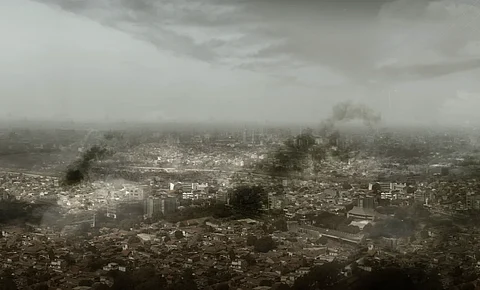

The world has been dealing with another war crisis. Recently, a war erupted between Israel and Iran and has been continuous for the last two days, which has resulted in the death of 138 people in Iran.
According to several updates, Israel attacked the nuclear sites of Iran for the second time through a fighter plane at around 10:30 pm on Friday. Reportedly, the attack killed around 60 people and approximately 350 people were injured.
The first attack was conducted on Friday at 5:30 am, which killed around 78 people, nine nuclear scientists and around 20 Iranian commanders.
It has been reported that amid these two airstrikes, Iran retaliated and fired around 150 missiles on Israel, including the six on the capital Tel Aviv. Accordingly, Iran’s attack has killed around three people in Israel and around 90 people, including seven soldiers, were severely injured.
Following the attack by Iran, Prime Minister of Israel Benjamin Netanyahu has been shifted to a safer place. Certain reports have outlined that the Israeli Defense Ministry was also destroyed during the attack but Israeli government has not shared any confirmation about the same,
Besides this, a warning was issued by the Defense Minister of Israel - Katz who stated that if more missiles will hit the land of his country then Tehran will burn.
The newer instability would have more macroeconomic implications on India, beyond the field of trade, as India is increasingly becoming dependent on oil imports. Whereas India had to stop importing oil from Iran due to US sanctions in 2019, the Goldman Sachs forecasts that Iran supply might decrease by 1.75 million barrels per day (b/d) over a six-month period and then steadily recover.
While highlighting the matter, the investment bank mentioned, “Assuming OPEC+ compensates for half the peak shortfall from spare capacity, Brent could rise above $90 per barrel before retreating to the $60s by 2026 as supply recovers.”
Along with this, prices of fruits, pulses and cereals had contributed to a decline in headline retail inflation in India to a 75-month low of 2.82 per cent in May 2025. It was this deflationary pressure which had led the Reserve Bank of India, Monetary Policy Committee (MPC) to reduce the policy repo rate by a bigger-than-anticipated 50 basis points. RBI however warned that the monetary policy has been left with a very limited scope to aid growth.